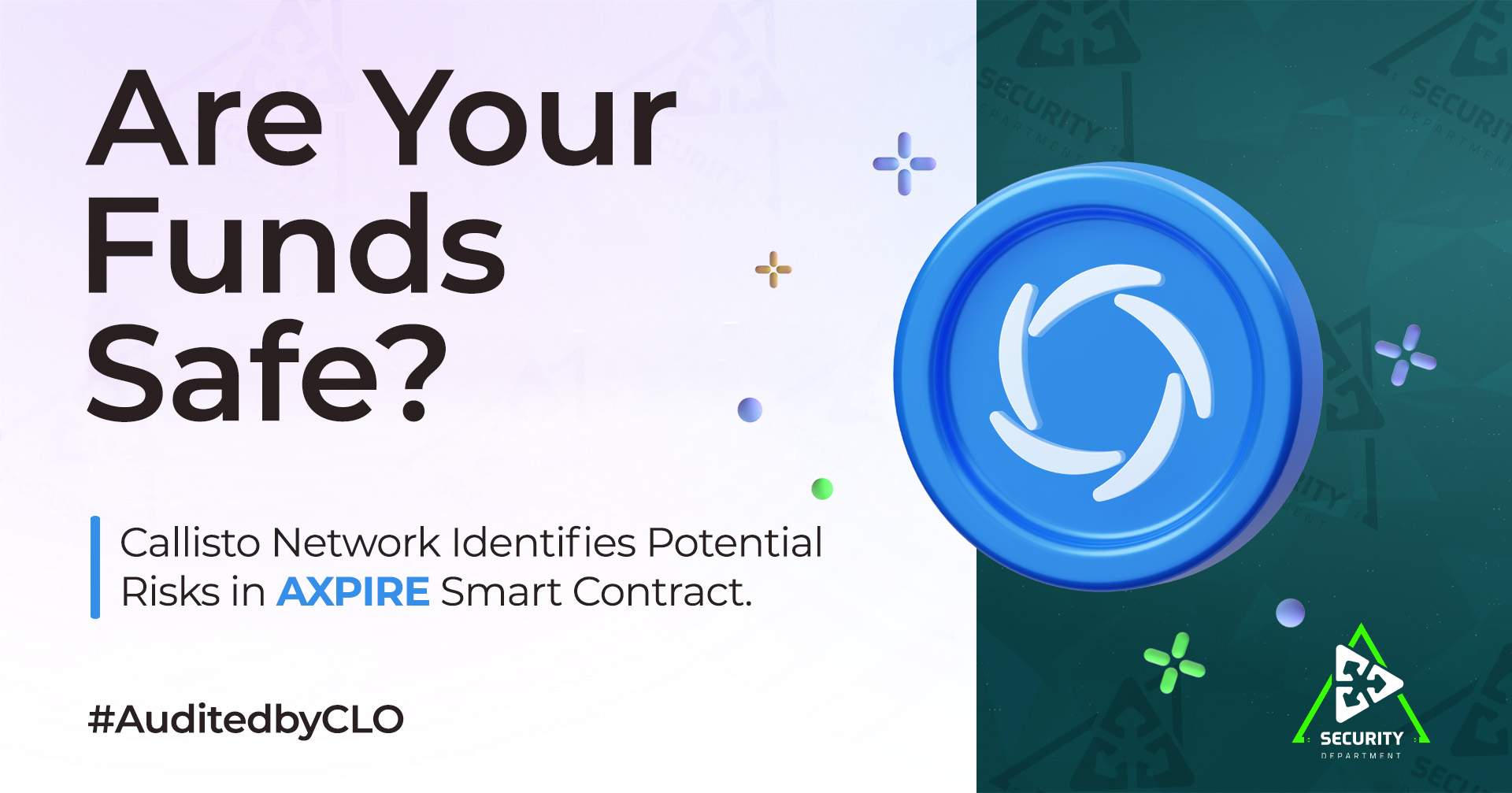aXpire Token (AXPR) Security Audit Report
Are Your Funds Safe?
Our expert team at Callisto Network has conducted an in-depth security audit of the aXpire Token (AXPR) smart contract. This audit aims to ensure the security of your funds by identifying and assessing any potential vulnerabilities. Here, we present our findings:
Executive Summary
This report presents the results of the security audit conducted by the Callisto Network Security Department on the aXpire Token (AXPR) smart contract in May 2019. It analyzes the contract’s security in-depth and highlights any identified vulnerabilities.
1. Scope of the Audit
The audit focused on the following aXpire (AXPR) contract:
2. Audit Findings
Our audit reported a total of 10 finding(s), categorized as follows:
- 0 high-severity issue(s).
- 1 medium severity issue(s).
- 4 low-severity issue(s).
In addition to these findings, our audit identified 5 additional points, detailed in the following sections:
- 0 note(s).
- 5 owner privilege(s).
2.1 ERC-20 Compliance
2.2 Owner Privileges
2.3 Allowance Approval
2.4 Transfer Event
2.5 Transfer to address(0)
2.6 Known Vulnerabilities of ERC-20 Token
3. Conclusion
The audited smart contract has issues with ERC20 Compliance and cannot be used as ERC20 token. Reported issues must be fixed prior to the usage of this contract.
About Callisto Network
Founded by Dexaran, co-founder of Ethereum Classic, Callisto Network is a blockchain platform that prioritizes security. We’ve conducted over 330 smart contract audits across platforms like Ethereum, Ethereum Classic, and EOS. In addition to our audits, we’ve developed the ERC 223 token standard and CallistoNFT standard, enhancements over existing standards that address flaws and offer new capabilities, further establishing us as industry leaders in crypto-security.







